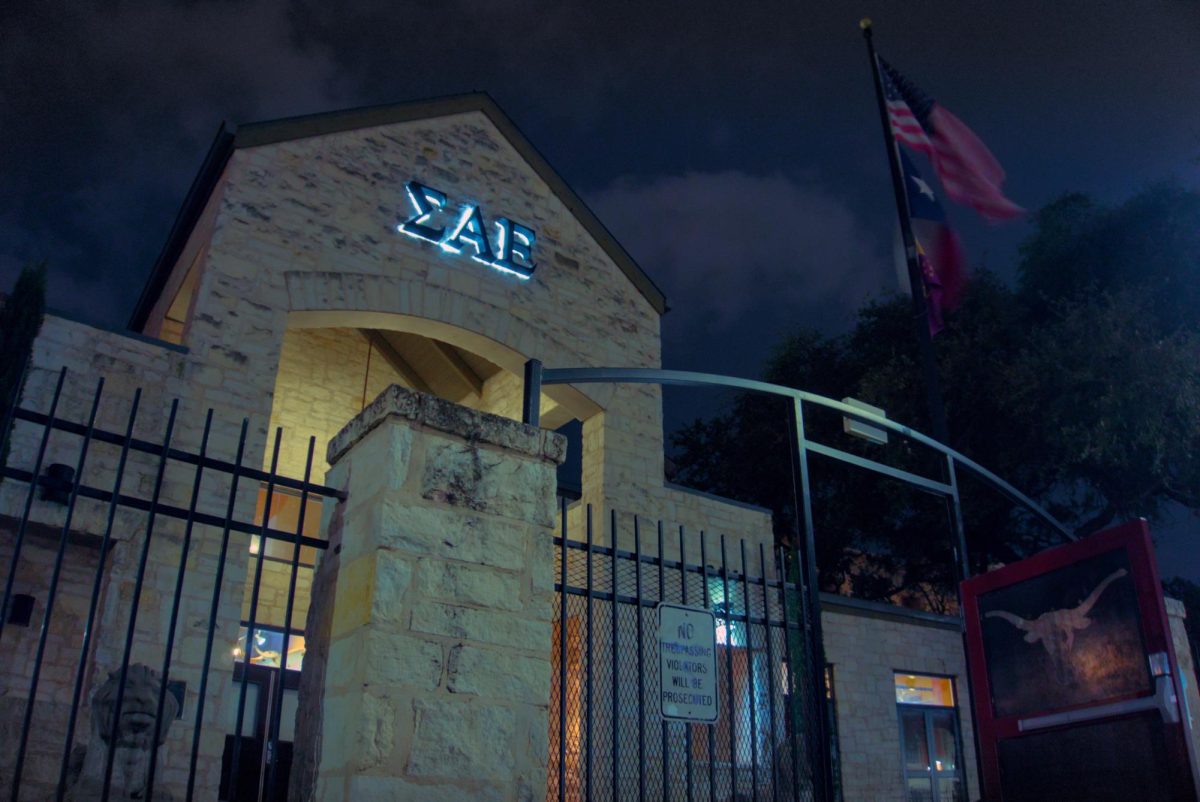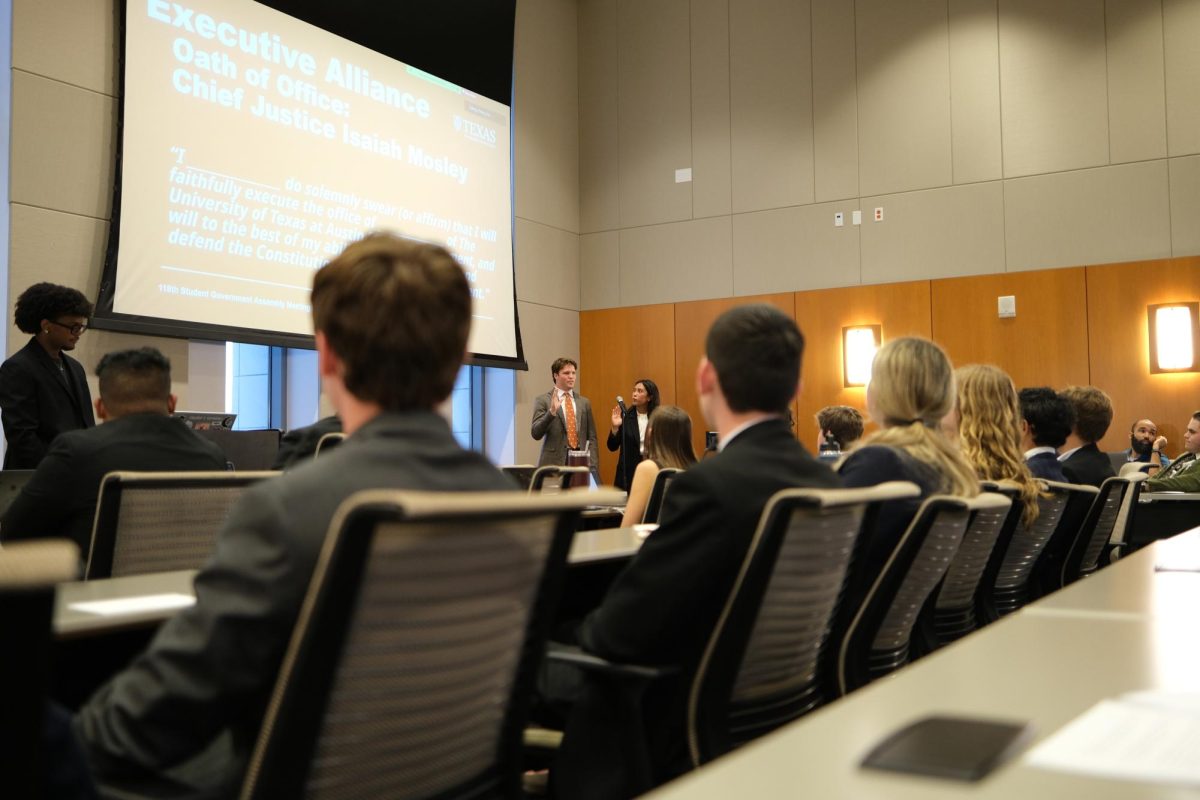A former exchange student is suing the Texas Rho chapter of the Sigma Alpha Epsilon fraternity for personal injury damages.
Sigma Alpha Epsilon is not a registered student organization and is not affiliated with the University. The chapter was suspended in 2017 due to hazing violations. The chapter reached an agreement to realign with SAE in April 2022 and is continuing to operate outside of university jurisdiction. The lawsuit lists SAE as compliant despite it not being officially recognized by the university.
On Mar. 3, 2023, Australian exchange student Julian Ascione and his girlfriend attended a party at the SAE house which Ascione believed was open to the public. The fraternity did not charge a door fee or restrict entrance, according to the original petition.
At the party, Ascione’s girlfriend left to use the restroom. While gone, two SAE members approached Ascione and told him to leave. Ascione agreed to leave and the fraternity members gave him permission to stay until his girlfriend returned, according to the court document.
While waiting for his girlfriend, a different group of fraternity members demanded Ascione leave the party, according to the petition.
“The group appeared intoxicated and were getting aggressive,” the petition said. “(Ascione) was struck in the face and taken to the ground. (His) leg was dislocated, ligaments were broken, his tibia fractured, and his nose broken. … When the assault was over, the fraternity boys refused to call an ambulance and instead told (Ascione) to walk home.”
The defendants’ attorney declined to comment.
Ascione’s attorney Clay Rawlings said he accrued over $100,000 in medical expenses over four surgeries, but his injuries still require more surgery.
Rawlings said he attempted to let the fraternity accept responsibility for the assault but eventually filed a lawsuit because SAE declined to accept responsibility. The petition lists SAE, Texas Rho, the chapter’s advisor and the chapter president among defendants. Ascione seeks between $1 million and $5 million in monetary relief.
Initially, the defendant’s attorney filed to transfer the case to federal court, citing “alienage jurisdiction,” which allows federal courts to take over cases involving a foreign national if there is more than $75,000 on the line, according to the defendant’s notice of removal.
However, Rawlings said the defendants had “absolutely no grounds to (move the case) to federal court.” Rawlings said the rule they cited states only a plaintiff can transfer the case to federal court, not a defendant.
“They were ethical enough to acknowledge they’d made a mistake, and they immediately filed an agreed motion to have it returned to state court,” Rawlings said.
Rawlings said the case should return to state court soon, and the discovery phase, in which the attorneys gather evidence, will continue. He hopes to iron out details such as who was involved and SAE’s security and conduct policies.
“I can’t talk about the evidence at this point, because it’s too early, but things are going to come out that are problematic to the way Mr. Ascione was treated after his leg was massively broken and shattered,” Rawlings said. “It’s unconscionable.”
Rawlings said if the defendants accept responsibility, a resolution could be issued in around nine months. If not, it could take up to two and a half years to go to a jury.
“As a result of his injuries, Julian Ascione was unable to continue with his studies and was forced to drop out of college for the spring semester,” according to the plaintiff’s petition. “Julian Ascione has suffered severe physical pain and suffering, mental anguish, disfigurement, impairment and disability, and in all reasonable probability, he will continue to suffer … in the future, if not for the rest of his life.”
Editor’s Note: This story was updated to include additional information clarifying that SAE is not affiliated with the University and Texas Rho was formerly listed in the lawsuit despite this fact. We’ve also clarified that Texas Rho, not what was formerly mentioned as “UT’s SAE chapter,” was listed as a defendant in the lawsuit. The Texan regrets this error.













